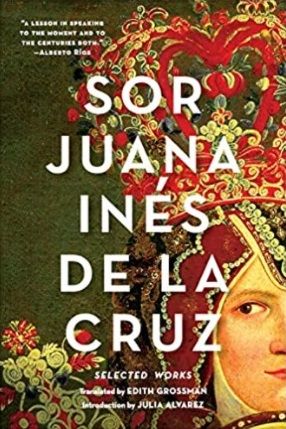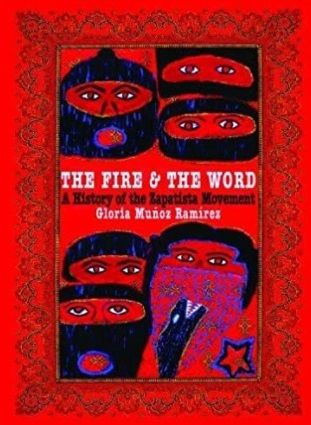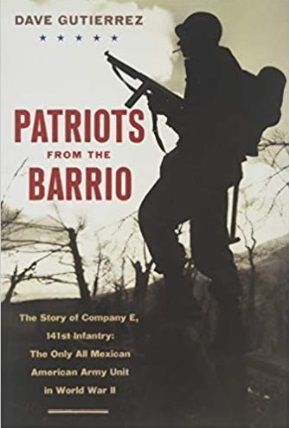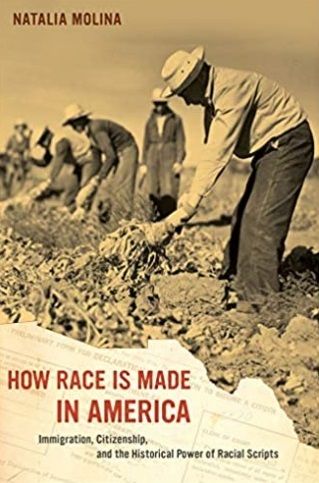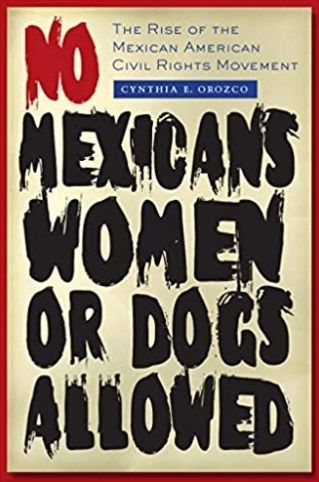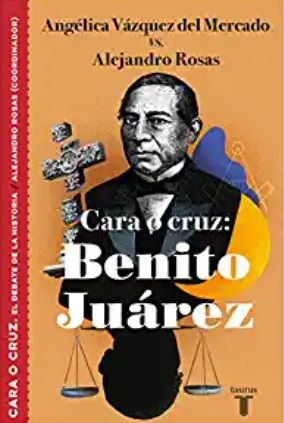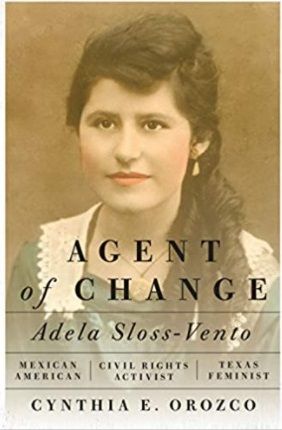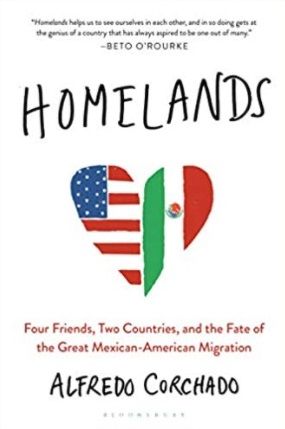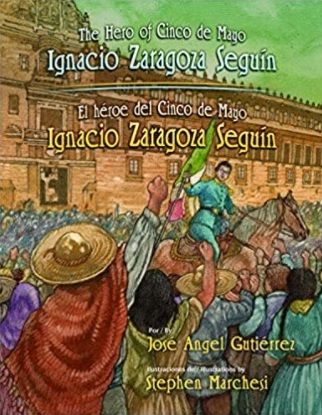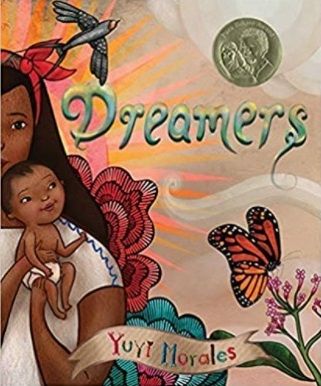
Learn Your Historia With These 20 Mexican History Books
The only times that I—an American of Mexican descent—remember learning about Mexican history in school are during discussions of ancient civilizations and science (the asteroid that killed the dinosaurs landed in what is now the Yucatán Peninsula). I don’t know if things have changed since then. However, given that Mexico is one of our two closest neighbors, that Mexican Americans are by far the largest group of Latinx people living in the U.S. (nearly 37 million as of 2018), and that 2021 marks 200 years since the end of the Mexican War of Independence (1810–1821), it never hurts to learn a little more with Mexican history books!
To that end, let’s look at some great books about both Mexican and Mexican American history. Some are available only in English or only in Spanish, but many are available in both languages. I’ve tried to include language/translation notes where necessary, so you can find Mexican history books in Spanish, English, or both—whichever you need. And, while these are not explicitly books about Mexican culture, you can learn a lot about a country’s culture by studying its history and heritage.
Lemme tell you: limiting this list to just 20 books was HARD (and technically I failed, as you shall see). No nation’s history can adequately fit into so few pages. Hopefully, this list provides a decent cross-section of the events and people that have shaped this fascinating country, from pre-Columbian times straight on through to multiple 19th century wars and 20th century political movements. Whether you’ve studied Mexican history before or only picked up a few tidbits from Coco and Roma, you’ll find something new and exciting to grab your interest below!
Best Mexican History Books
The Broken Spears: The Aztec Account of the Conquest of Mexico by Miguel León-Portilla, Translated by Lysander Kemp
The Aztec empire was among the most powerful civilizations in pre-Columbian Mexico. Spanish invaders defeated them in 1521, wiping out much of their writings and perspectives—much, but not all. Through diligent research, León-Portilla, a renowned expert on Aztec history, has recovered the long-ignored voices of the people who watched their world burn.
Sor Juana Inés de la Cruz: Selected Works by Juana Inés de la Cruz, Translated by Edith Grossman
Here’s a chance to learn directly from the pen of one of Mexico’s most revered writers and scholars. Juana Inés de la Cruz, a self-educated 17th century nun, wrote in multiple formats on multiple subjects, from deeply personal poems to proto-feminist essays (the latter of which got her in serious trouble with the church). This collection has been translated into English, but you can certainly find Spanish-language collections as well.
The Chinese in Mexico: 1882-1940 by Robert Chao Romero
Chinese immigrants began arriving in Mexico in noticeable numbers in the late 1800s, after the United States passed the Chinese Exclusion Act (exactly what it sounds like). Romero uses primary sources from two countries to reconstruct these immigrants’ journeys; their contributions, both good and bad, to the economy and society; and the racist, xenophobic backlash to their presence.
Las Soldaderas: Women of the Mexican Revolution by Elena Poniatowska, Translated by David Dorado Romo
In Las Soldaderas, Poniatowska, an acclaimed journalist, tells the story of the many women who fought fearlessly during the Mexican Revolution (1910–1920), during which various leaders of varying qualities were forced out or assassinated. While this is not Poniatowska’s best-known work, it is nonetheless a fascinating collection of photographs and stories about the soldaderas’ incredible lives—and, all too often, their brave deaths.
The Fire & the Word: A History of the Zapatista Movement by Gloria Muñoz Ramirez
The Zapatistas burst out of the jungles of southern Mexico and into the national consciousness in the mid-1990s. Naming themselves after Emiliano Zapata, hero and martyr of the Mexican Revolution, the group fought—and still fights—for economic parity and better living conditions for all Mexicans. Muñoz Ramirez conducted extensive interviews with the movement’s leaders, allowing her a uniquely intimate glimpse into their lives, beliefs, and goals.
Mexican American History Books
Manifest Destinies: The Making of the Mexican American Race by Laura E. Gómez
Who were the first Mexican Americans? According to Gómez, they were the residents of the border states (Texas, New Mexico, etc.) who suddenly became Americans after the U.S. started sidling into Mexican territory in the mid-1840s—a move which triggered the Mexican-American War (1846–1848). Mexican Americans were immediately subject(ed) to ever-changing (but often derogatory) categorizations and labels created by others—a situation that continues to and has implications in the present day.
Decade of Betrayal: Mexican Repatriation in the 1930s by Francisco E. Balderrama and Raymond Rodriguez
With jobs made scarce by the Great Depression, governmental authorities throughout the United States made the horrific decision to “encourage” Mexican immigrants to return to Mexico. Over a million people were ultimately forced back over the border; many of them were born in America and had never been to Mexico. This book dissects both the immediate impact of the deportations and the long-term effects on families torn apart by this cruel policy.
Patriots from the Barrio: The Story of Company E, 141st Infantry: The Only All Mexican American Army Unit in World War II by Dave Gutierrez
Americans of all ethnicities, including Mexican Americans, served in World War II. Inspired by family stories about an uncle who served in Company E, Gutierrez combines archival research with first-hand recollections to reconstruct their story and pay tribute to their valiant and sacrificial service.
How Race is Made in America: Immigration, Citizenship, and the Historical Power of Racial Scripts by Natalia Molina
Focusing on the period from 1924 to 1965, Molina explores white America’s self-serving perceptions of race, which kept Mexicans and Mexican Americans at a “safe” distance. The contradictory nature of these perceptions (Mexican immigrants were not subject to anti-miscegenation or anti-immigration laws, but they were ruthlessly exploited by their employers and segregated from whites) shows just how flimsy they really are.
No Mexicans, Women, or Dogs Allowed: The Rise of the Mexican American Civil Rights Movement by Cynthia E. Orozco
The League of United Latin-American Citizens (LULAC) was founded in 1929 by Mexican American veterans looking to protect and expand their rights. They achieved great successes but were not without controversy (they did not initially accept women as members, for instance). Written by a former LULAC president, this book traces the group’s history, grapples with its flaws, and celebrates its triumphs for civil rights.
If you want to know more about Latinx history, here is a list of Latinx history books for you to peruse.
(Auto)Biographies About Mexicans and Mexican Americans
Cara o cruz: Benito Juárez by Angélica Vázquez del Mercado and Alejandro Rosas
Benito Juárez was Mexico’s first Indigenous (Zapotec) president. Like his contemporary Abraham Lincoln, Juárez rose from poverty to become a lawyer and, ultimately, a controversial president who served during dangerous and historic times. This book was written by two experts who go beyond Juárez’s exalted public image to debate his flaws and strengths as a leader. It is part of a (Spanish-only) series about Mexican historical figures, including Miguel Hidalgo, father of Mexican independence, and Antonio López de Santa Anna, who repeatedly ended up as president despite A) not wanting the job, and B) being terrible at it.
Agent of Change: Adela Sloss-Vento, Mexican American Civil Rights Activist and Texas Feminist by Cynthia E. Orozco
Sloss-Vento dedicated her long life to fighting for the rights of Mexican Americans. A prolific essayist, she turned her pen to many pressing issues of the day, most notably feminism and civil rights, and became a leader in the burgeoning Mexican American and Chicano rights movements. Orozco gives an outspoken, complex activist her due in this compelling biography.
’68: The Mexican Autumn of the Tlatelolco Massacre by Paco Ignacio Taibo II, Translated by Donald Nicholson-Smith
Student protests were a familiar sight in many cities in the late 1960s, and Mexico City was no different. But on October 2, 1968, the protests took a chilling turn: the army murdered hundreds of students in the streets (exact numbers remain hazy, as the government took pains to cover up and deny their role in the massacre). Written by a protestor who was there that fateful day, ’68 provides a riveting eyewitness account of a modern atrocity.
For more books on the history of Mexico City specifically, check out these history of Mexico City books.
Sin Querer Queriendo by Roberto Gómez Bolaños (“Chespirito”)
Chespirito is one of Mexico’s best-loved entertainers. In the 1970s, he created two iconic TV characters: el Chavo, a luckless orphan who hangs out in a barrel, and el Chapulín Colorado, a clumsy (but always triumphant!) superhero. In his autobiography, which is not available in English, Gómez Bolaños recounts his professional and personal lives with his distinctive humor.
I should mention that Gómez Bolaños ended up in a disproportionate number of legal battles with his El Chavo costars regarding the copyrights to their characters. In the interest of fairness, I also include Había una vez una niña en una vecindad, the (Spanish-only) autobiography of actor María Antonieta de las Nieves, who had the most high-profile dispute with Gómez Bolaños.
Homelands: Four Friends, Two Countries, and the Fate of the Great Mexican-American Migration by Alfredo Corchado
The Mexican American population exploded during the 1980s. Corchado, a journalist for The Wall Street Journal, was among the wave of newcomers. As he strove to make a name and a life for himself, he befriended other Mexican immigrants who would keep him connected to his old nation and help him adjust to his new one. One part autobiography and one part history lesson, Homelands is also available in Spanish.
Mexican History Books for Kids
The Hero of Cinco de Mayo/El héroe del Cinco de Mayo: Ignacio Zaragoza Seguín by José Angel Gutiérrez and Stephen Marchesi
You’ve heard of (and possibly drunk through) Cinco de Mayo, but what is it actually about? It commemorates the Battle of Puebla, in which the Mexican army managed to (temporarily) repel the better-organized French invasion (or “intervention,” as it is also known) in 1862. This bilingual book tells the story of Ignacio Zaragoza Seguín, who led Mexico to victory that day.
Book Riot has a whole list of bilingual children’s books that can help people of all ages improve their language skills.
That’s Not Fair!: Emma Tenayuca’s Struggle for Justice/¡No Es Justo!: La lucha de Emma Tenayuca por la justicia by Carmen Tafolla, Sharyll Teneyuca, and Terry Ybáñez
Angered and saddened by the terrible conditions in which her fellow Mexican Americans toiled, Emma Tenayuca became a labor activist and organized a massive strike among Texas farm workers—all by the time she was 21. Kids will learn about Tenayuca’s vital and inspirational but often forgotten story in this bilingual children’s book.
Separate Is Never Equal: Sylvia Mendez and Her Family’s Fight for Desegregation by Duncan Tonatiuh
Most Americans are probably familiar (as they should be!) with Brown vs. Board of Education, the Supreme Court decision which outlawed school segregation. Seven years before, however, a case in California greased the wheels for this historic decision: Mendez vs. Winchester, in which young Sylvia Mendez won the right to attend a regular school instead of a “Mexican school.” This stunningly illustrated, award-winning book tells her story.
The Life of/La Vida de Selena by Patty Rodriguez, Ariana Stein, and Citlali Reyes
This adorable, bilingual board book introduces young children to new Spanish words and to the life of celebrated Mexican American singer Selena Quintanilla. It is part of the Lil’ Libros series, which also has entries featuring Ellen Ochoa (first Latina in space), Cuauhtémoc (last Aztec emperor), Frida Kahlo (no explanation needed), and other important figures from Mexican and Latinx history.
Dreamers by Yuyi Morales
When she first arrived in California in 1994, Morales only planned to stay a short while. Circumstances forced her to relocate permanently, leaving her feeling isolated and uncertain. She found solace in pictures books at the local library. Now, Morales tells her story in her own, critically acclaimed picture book. Dreamers is available in both English and Spanish editions, and Morales’s dream-like illustrations are breathtaking in any language.




